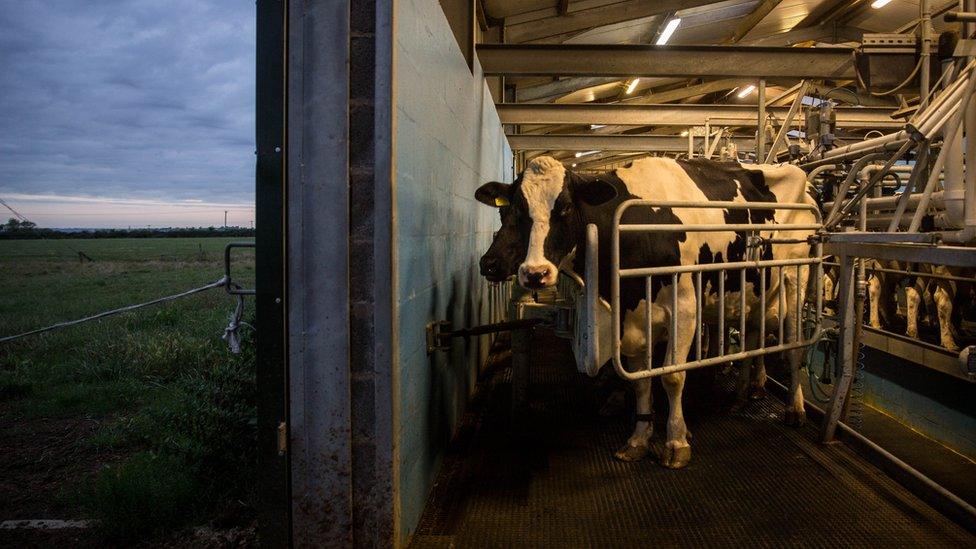'Industrial' farms should lose subsidies
- Published

Large-scale "industrial" farms are receiving too much money in the form of EU subsidies, the Campaign to Protect Rural England has said.
The claim is made in a publication by the charity which sets out a vision for the future of post-Brexit agriculture.
The CPRE says these large-scale operations damage the environment and put smaller farmers out of business.
To benefit countryside and rural communities, subsidies should instead go to smaller, more diverse farms.
It also says land should be made available for new farmers to enter the market.
Leaving the European Union means farmers will no longer receive EU subsidies under the Common Agricultural Policy (CAP).
In 2015, this added up to £2.4bn. This money can account for up to 60% of a farmer's income. The UK government has announced that it will match this funding until 2020.
Dramatic shift
In its paper New Model Farming, the CPRE argues that in order to justify such huge state aid there needs to be a dramatic shift from giving money to what it calls "industrial farms".
It says: "New farmers and new small farms can kick-start an agricultural revolution."
The paper claims some 80% of the CAP payment goes to the 20% largest businesses.
It points out that populations of farmland birds have more than halved over the last 40 years. It says that the damage to soil "is estimated to cost £1.2 billion a year".
"A more diverse sector - in demographics, farm size and production - would forge a more resilient future that offers rewards beyond food: beautiful landscapes, clean water, abundant wildlife, better flood management and improved carbon storage," the paper says.
According to the report there are 34,000 fewer farms than there were a decade ago.
Land should be made available for new farmers to enter the market in order to reverse this decline and to help investment in rural communities.
Responding to the report, the president of the National Farmers Union, Meurig Raymond, told BBC News: "Around 80% of England's landscape character is now in stable or improving condition - take a walk down some of the 200,000km of public footpaths maintained by farmers to see.
"This is not a debate about large or small businesses, all farms contribute."
Mr Raymond said that the NFU was currently holding its largest ever consultation in its history on the industry's future.
"Missing from the CPRE's vision is food security which, in our view, should be considered to be a legitimate political goal and public good alongside the environment. British farmers are proud of the high standards of production and the traceability of the food they produce, and high animal welfare."
In a statement Defra said: "Supporting our farmers and protecting the environment will form an important part of our exit from the EU."
"At every step of these negotiations we will work to ensure the best possible outcome for the British people - not least our farming community who play a vital role in our country. We are about to begin these negotiations and it would be wrong to set out unilateral positions in advance."